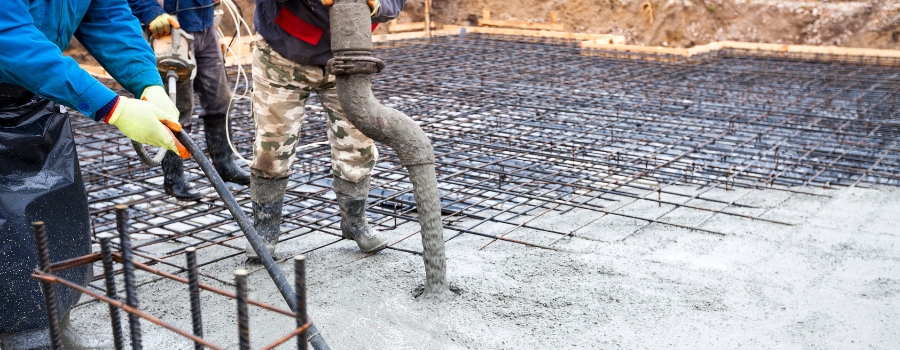Blog Post

The Environmental Impact of Concrete: Sustainable Solutions and Practices
Concrete is a cornerstone of modern construction. It is a versatile and widely used building material composed of cement, sand, gravel, and water. It is known for its strength, durability, and affordability, making it a popular choice for construction projects of all sizes.
Concrete can be formed into various shapes and finishes, making it suitable for a wide range of applications, from building foundations and roads to decorative elements and furniture. Ready mix concrete, supplied by companies like Save Time Concrete, ensures consistent quality and ease of use for construction projects.
Concrete is used in everything from buildings and bridges to roads and sidewalks. But its production also comes with a significant environmental impact. Today, we will explore the environmental downsides of concrete, as well as sustainable solutions and practices that are being developed to reduce its footprint.
The Environmental Costs of Concrete
Sustainable Solutions for Concrete
There are a number of ways to reduce the environmental impact of concrete. Here are some of the most promising solutions:
Save Time Concrete is a leading supplier of ready mix concrete in London, and we are committed to using sustainable practices throughout our operations.
Best Practices for Sustainable Concrete Use
The Role of Ready Mix Concrete in Sustainability
Ready mix concrete plays a crucial role in sustainable construction practices. Ready mix concrete is produced in a controlled environment, which ensures consistent quality and reduces waste. Additionally, the use of ready mix concrete can lead to faster construction times, reducing overall energy consumption.
The Road Ahead for Sustainable Concrete
The construction industry is increasingly aware of the need to reduce its environmental impact. By adopting sustainable solutions and practices, the industry can continue to use concrete while minimising its environmental footprint.
Here at Save Time Concrete, we are committed to being a leader in sustainable concrete practices. We offer a variety of sustainable concrete products and services, including low-carbon concrete mixes and recycled content concrete. We also work closely with our customers to help them develop sustainable construction plans.
In addition to our commitment to sustainability, Save Time Concrete is also known for our high-quality products, reliable service, and competitive prices. We are a one-stop shop for all your concrete needs, from ready mix concrete to other concrete mixes. So if you are looking for a concrete supplier that is committed to sustainability, look no further than Save Time Concrete.
Contact Save Time Concrete today to learn more about our sustainable concrete products and services.